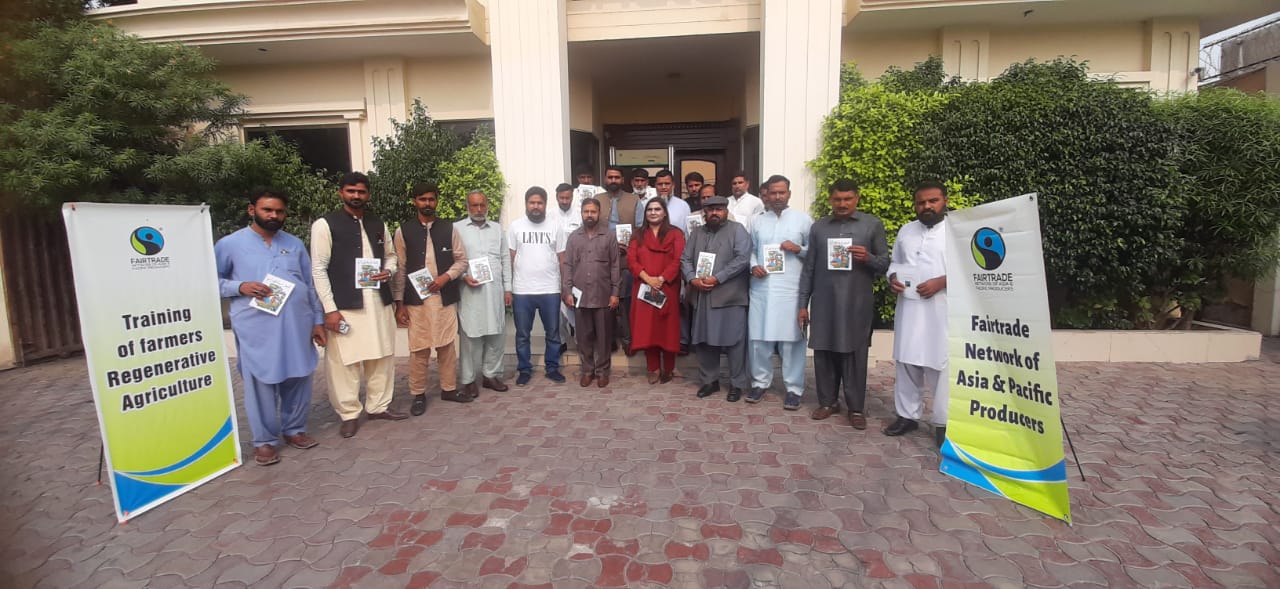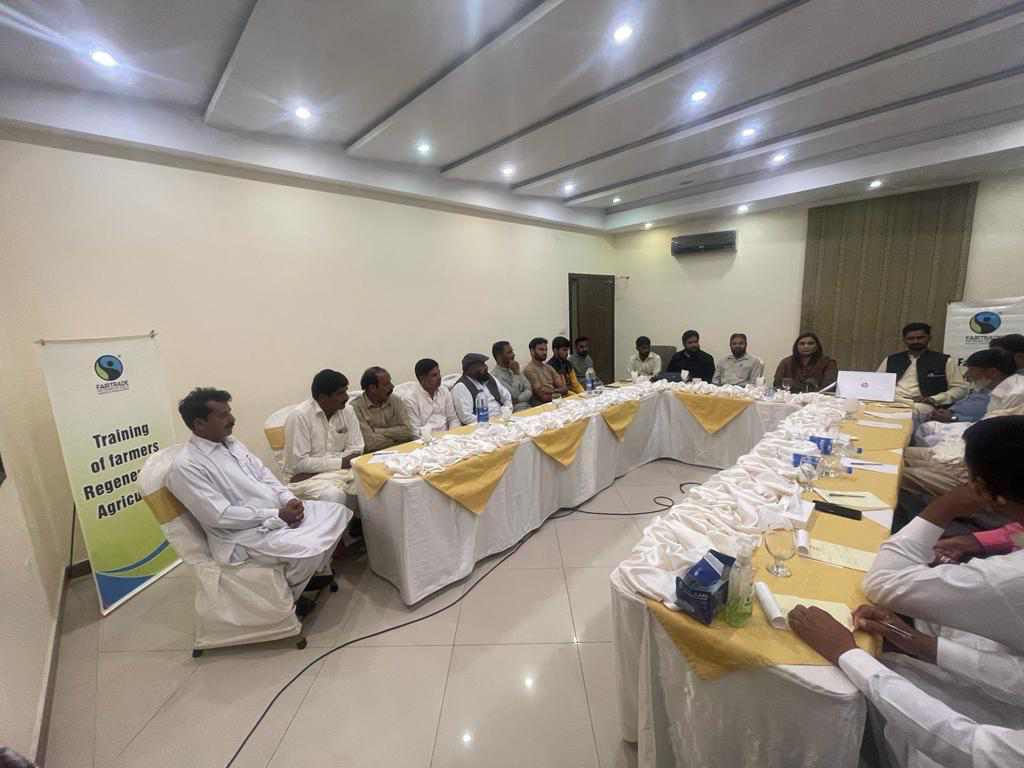Amidst Pakistan’s sprawling cotton fields, the fairtrade cotton producers in Pakistan have consistently championed climate-conscious practices since its affiliation with Fairtrade. In a tale of commitment, 25 representatives from 2 small producer organizations (SPOs) immersed themselves in a transformative training program led by Fairtrade NAPP. This training aimed against the backdrop of a shared mission—a quest for enriching knowledge and capacities towards sustainable farming.
 The comprehensive two-day training program was facilitated by the Central Cotton Research Institute (CCRI). Farmers were introduced to the principles of regenerative agriculture, greenhouse gas emissions control, and innovative post-harvesting techniques. The training program was designed to impart practical knowledge to enhance the productivity and quality of cotton growing systems. Participants acquired three important aspects –
The comprehensive two-day training program was facilitated by the Central Cotton Research Institute (CCRI). Farmers were introduced to the principles of regenerative agriculture, greenhouse gas emissions control, and innovative post-harvesting techniques. The training program was designed to impart practical knowledge to enhance the productivity and quality of cotton growing systems. Participants acquired three important aspects –
- Introduction to the principles of regenerative agriculture, GHS and Emission Control.
- Developing the capacities of the producers to increase productivity and quality of the cotton growing system based on the development of sustainable and competitive production.
- Developing a roadmap for implementing best farm practices grounded in regenerative agriculture principles.
As part of the follow-up activities, the trained farmers have committed to extend their knowledge to other farmers, creating a ripple effect that promises to reach far and wide. This peer-to-peer dissemination of information is seen as a crucial step in ensuring the widespread adoption of regenerative agriculture practices among the farming community.
By the end of the program, farmers gained both theoretical insights and practical skills to revolutionize their farming practices. The timing of this initiative is particularly crucial considering the challenges faced by farmers due to current inflation. By equipping them with sustainable and regenerative practices, Fairtrade NAPP aims not only to enhance agricultural productivity but also to empower farmers economically. This holistic approach is not just about improving yields; it’s about fostering resilience and prosperity within the farming community.





